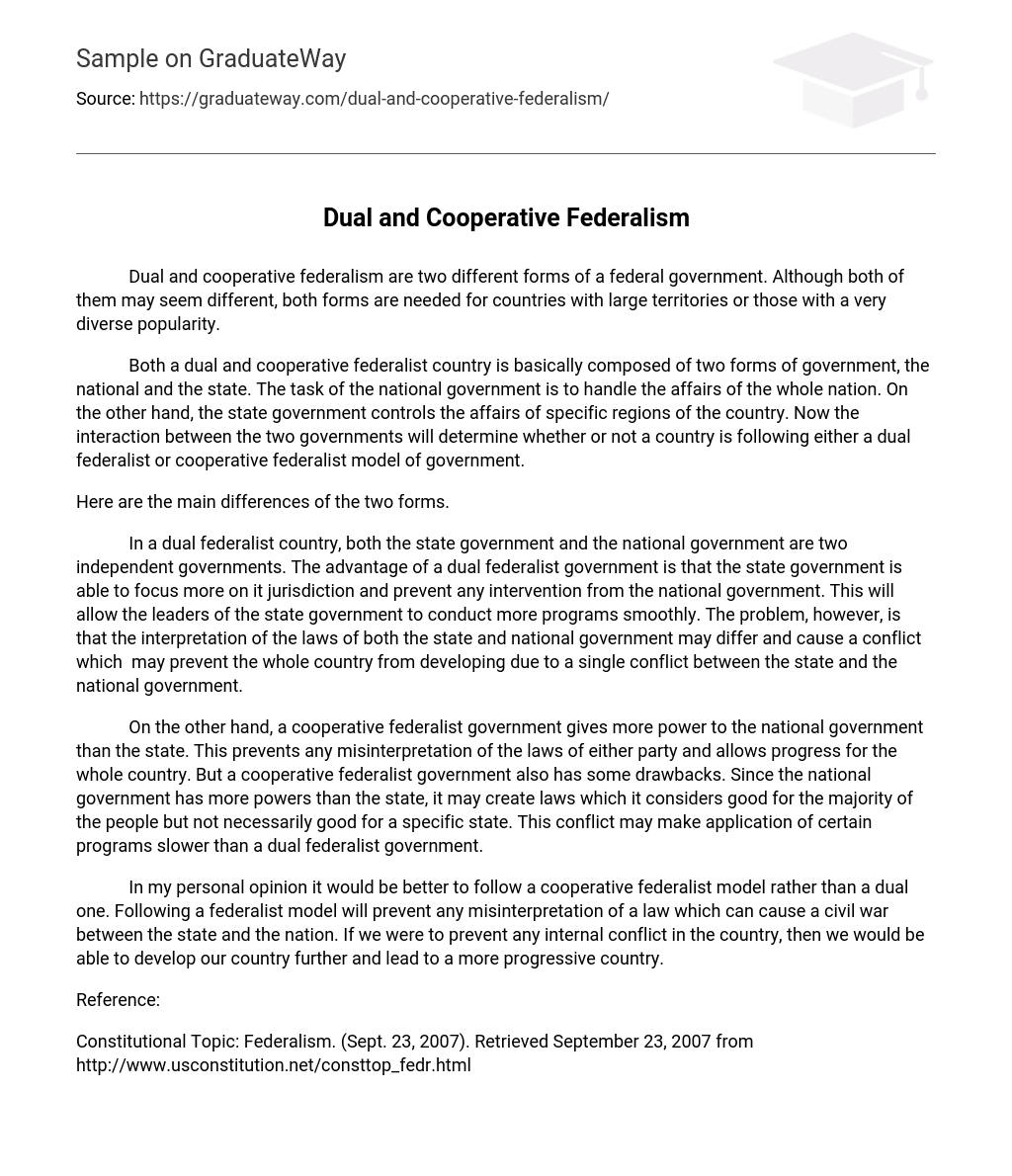Dual and cooperative federalism are two different forms of a federal government. Although both of them may seem different, both forms are needed for countries with large territories or those with a very diverse popularity. Both a dual and cooperative federalist country is basically composed of two forms of government, the national and the state. The task of the national government is to handle the affairs of the whole nation. On the other hand, the state government controls the affairs of specific regions of the country. Now the interaction between the two governments will determine whether or not a country is following either a dual federalist or cooperative federalist model of government. Here are the main differences of the two forms.
In a dual federalist country, both the state government and the national government are two independent governments. The advantage of a dual federalist government is that the state government is able to focus more on it jurisdiction and prevent any intervention from the national government. This will allow the leaders of the state government to conduct more programs smoothly. The problem, however, is that the interpretation of the laws of both the state and national government may differ and cause a conflict which may prevent the whole country from developing due to a single conflict between the state and the national government.
On the other hand, a cooperative federalist government gives more power to the national government than the state. This prevents any misinterpretation of the laws of either party and allows progress for the whole country. But a cooperative federalist government also has some drawbacks. Since the national government has more powers than the state, it may create laws which it considers good for the majority of the people but not necessarily good for a specific state. This conflict may make application of certain programs slower than a dual federalist government.
In my personal opinion it would be better to follow a cooperative federalist model rather than a dual one. Following a federalist model will prevent any misinterpretation of a law which can cause a civil war between the state and the nation. If we were to prevent any internal conflict in the country, then we would be able to develop our country further and lead to a more progressive country.
Reference
- Constitutional Topic: Federalism. (Sept. 23, 2007). Retrieved September 23, 2007 from http://www.usconstitution.net/consttop_fedr.html





